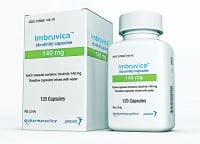The Japan approval of AstraZeneca's ($AZN) Tagrisso (osimertinib), a first-in-class drug used to treat non-small cell lung cancer (NSCLC), represents a potential major change in treatment options in the country and brings on a comparison with the state-of-play on therapies available in China.
 |
| AstraZeneca CEO Pascal Soriot |
The nod to Tagrisso by Japan's Ministry of Health, Labour and Welfare (MHLW) came this week, a spokesman confirmed.
In the first-quarter earnings call, AstraZeneca's Luke Miels, executive vice president for Global Portfolio and Product Strategy, talked a bit on what the game plan would be for Tagrisso in Japan upon approval.
"We actually expect that Tagrisso will benefit from our existing presence and infrastructure in lung, and naturally it represents quite an opportunity because of the prevalence of EGFR mutations in Japanese patients," he said.
The Japan approval also sets up a sharp contrast with China where Boehringer Ingelheim hopes to be the first company to get a second-generation NSCLC treatment, Giotrif (afatinib), approved as soon as this year, according to Gerd Stehle, vice president and International Area head of Oncology for the privately held German firm.
"We have submitted (Giotrif) for approval to the China FDA," Stehle told FiercePharmaAsia in an interview. "We can hope for news soon, maybe in the next few months."
That would set up a dynamic that could pip an AstraZeneca NSCLC drug in China, along with ones from Roche ($RHBBY) and local firm Betta Pharmaceuticals.
Earlier this month, Li Bin, director of the National Health and Family Planning Commission, was said to be leading negotiations to cut the prices by as much as half on 5 imported or patented drugs in China. The drugs include NSCLC treatments, Roche's Tarceva (erlotinib), AstraZeneca's Iressa (gefitinib), and Conmana (icotinib) from Hangzhou-based Betta Pharmaceuticals.
In results released in January of a global Phase IIb LUX-Lung 7 trial of Giotrif, the drug was shown to be superior to Iressa in cutting the risk of disease progression and treatment failure in first-line patient treatment, according to a Boehringer Ingelheim statement.
"This is especially significant in Asia where lung cancer is the most common cancer with over 900,000 new cases a year, which accounts for more than half of all lung cancer cases worldwide," Stehle noted, adding that the 40% figure of EGFR mutation is much higher than in Caucasians and is found in patients that do not smoke.
 In addition to the Tagrisso nod, MHLW approved other oncology therapies, including Bayer AG's radiation therapy Xofigo (radium-223 dichloride) and Janssen Pharmaceutical KK's Imbruvica (ibrutinib) for chronic lymphocytic leukemia and small lymphocytic lymphoma.
In addition to the Tagrisso nod, MHLW approved other oncology therapies, including Bayer AG's radiation therapy Xofigo (radium-223 dichloride) and Janssen Pharmaceutical KK's Imbruvica (ibrutinib) for chronic lymphocytic leukemia and small lymphocytic lymphoma.
Also in the MHLW lineup was Tafinlar (dabrafenib) from Swiss-based Novartis ($NVS) for first-line combination use in metastatic melanoma that will be used in conjunction with a companion diagnostic.
As well, MHLW approved Novartis oncology drug Mekinist (trametinib), combined with Tafinlar to treat melanoma patients, which rounds out the oncology picture and shows the effect of the deal with GlaxoSmithKline ($GSK) on Asian treatment pathways in oncology.
Novartis bought both therapies from GSK in the swap of products completed in March 2015. GSK had actually earlier bought trametinib from Japan Tobacco, which still holds rights in Japan. An Ono Pharmaceutical/Bristol-Myers Squibb ($BMY) pact saw Opdivo (nivolumab) approved in Japan in 2014.
- here's the MHLW website